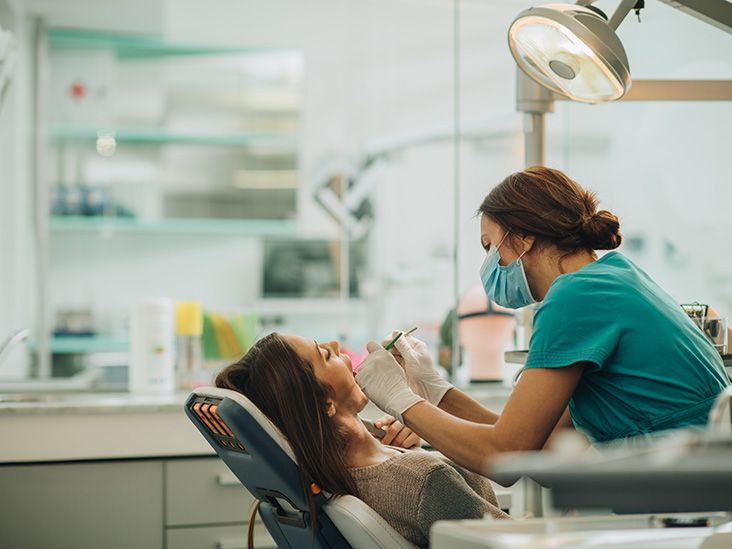Change Your Smile with Porcelain Veneers Washington DC for a Radiant Appearance
Usual Inquiries Concerning Oral Veneers Addressed
Oral veneers have actually ended up being a progressively desired alternative for those seeking to boost their smiles, yet numerous individuals remain uncertain concerning numerous elements of their use. Trick concerns usually occur concerning the application process, long life, and prospective risks linked with these aesthetic enhancements. The difference between porcelain and composite veneers can substantially influence one's selection. As we explore these common inquiries, it becomes important to take into consideration not just the advantages however likewise the implications of selecting dental veneers in quest of a much more positive appearance. What elements should one evaluate before making such a decision?
What Are Oral Veneers?
Oral veneers are thin, tailor-made coverings crafted from porcelain or composite material that are developed to cover the front surface of teeth. These oral prosthetics serve both aesthetic and useful objectives, giving a service for various oral flaws, including staining, chips, spaces, and misalignment. By sticking to the teeth, veneers can significantly improve the general appearance of a smile, developing a much more appealing and consistent look.
Porcelain veneers are specifically favored for their natural clarity and stain resistance, making them an excellent choice for individuals seeking resilient outcomes. On the other hand, composite material veneers are typically cheaper and can be used in a single go to, however they may not provide the very same durability as porcelain choices.
The choice to choose dental veneers often stems from a need for visual enhancement, but individuals need to likewise take into consideration elements such as the durability of the material, upkeep demands, and the potential requirement for tooth decrease (Veneers). Ultimately, oral veneers stand for a versatile and reliable service for accomplishing a glowing smile, dealing with individual aesthetic requirements while promoting self-confidence and self-esteem
Just How Are Veneers Applied?
The application procedure for veneers calls for mindful preparation and accuracy to guarantee optimum outcomes. The treatment commonly starts with a detailed assessment, where the dental professional assesses the individual's oral wellness, discusses desired end results, and figures out the ideal type of veneers, whether porcelain or composite resin.
When the treatment plan is developed, the dental practitioner prepares the teeth by getting rid of a slim layer of enamel, typically about 0.5 mm to 1 mm, to fit the veneer. This action is crucial as it guarantees a correct fit and prevents the veneers from appearing bulky - Dental Veneers. After preparation, perceptions of the teeth are taken to develop personalized veneers that match the person's distinct oral structure and visual choices
While the permanent veneers are being made in an oral lab, short-term veneers may be put to protect the prepared teeth. As soon as the long-term veneers prepare, the dentist will thoroughly bond them to the teeth utilizing a solid oral adhesive. Last changes are made to make certain appropriate alignment and bite, adhered to by polishing for a natural look. The process finishes in a follow-up appointment to check the veneers' fit and the person's contentment with their brand-new smile.
What Are the Perks?

Furthermore, veneers are known for their durability and resistance to discoloring compared to all-natural teeth. Made from high-grade materials such as porcelain or composite resin, they can preserve their appearance for several years with proper care. This durability makes them a useful financial investment in one's oral look.
Along with visual enhancements, veneers can also add to boosted dental wellness. By covering damaged or deteriorated teeth, they can supply extra assistance and defense, assisting to protect against further degeneration or damage. This safety aspect can decrease the need for more extensive dental treatments in the home future.

How Much Time Do They Last?
With correct treatment and upkeep, dental veneers can last anywhere from 10 to 15 years, making them a resilient solution for improving one's smile. The long life of veneers largely relies on the material made use of, the top quality of the first placement, and the client's adherence to dental hygiene methods.
Porcelain veneers are known for their sturdiness and resistance to check this staining, generally lasting closer to the 15-year mark when taken care of appropriately. Compound veneers, while extra affordable, might require replacement earlier, usually within 5 to 10 years because of their sensitivity to wear and discoloration.

In addition, wearing a mouthguard throughout sporting activities or nighttime can provide extra security. Eventually, while veneers offer a considerable aesthetic improvement, their durability is substantially influenced by the commitment to appropriate oral care and routine assessments with a dental professional.
Exist Any Threats?
Considering the transformative effects of oral veneers, it is essential to recognize the potential dangers connected with their application. While veneers can boost the look of teeth, the treatment includes the removal of a thin layer of enamel, which can increase tooth level of sensitivity and susceptability to degeneration.
One considerable danger is the opportunity of incorrect placement or suitable, bring about discomfort, bite misalignment, or also damages to the underlying tooth framework. In addition, if the veneers are not maintained properly, they can become blemished or chipped in time, requiring substitute.
Individuals may also experience allergic responses to the materials made use of in the veneers, particularly if they have sensitivities to certain dental compounds. In addition, while veneers are resilient, they are not indestructible; extreme pressure from squeezing or grinding can result in fractures.
It is necessary for people to consult with a qualified dental specialist to evaluate their Full Report specific threats and to adhere to aftercare guidelines diligently. By understanding these threats, people can make informed choices regarding their oral veneer therapy and ensure the longevity and success of their improvements.
Final Thought
In summary, oral veneers stand for a useful cosmetic option for enhancing smiles, with factors to consider concerning their application, benefits, longevity, and connected risks. Ultimately, informed decision-making concerning oral veneers can lead to adequate aesthetic results and boosted dental wellness.
Dental veneers are thin, personalized shells crafted from porcelain or composite resin that are created to cover the front surface of teeth. After preparation, impressions of the teeth are taken to create customized veneers that match the client's unique oral structure and aesthetic preferences.
While the irreversible veneers are being made in a dental research laboratory, momentary veneers may be placed to protect the prepared teeth. Once the irreversible veneers are ready, the dental expert will very carefully bond them to the teeth making use of a solid oral adhesive. Eventually, notified decision-making regarding dental veneers can lead to sufficient aesthetic results and boosted dental health and wellness.